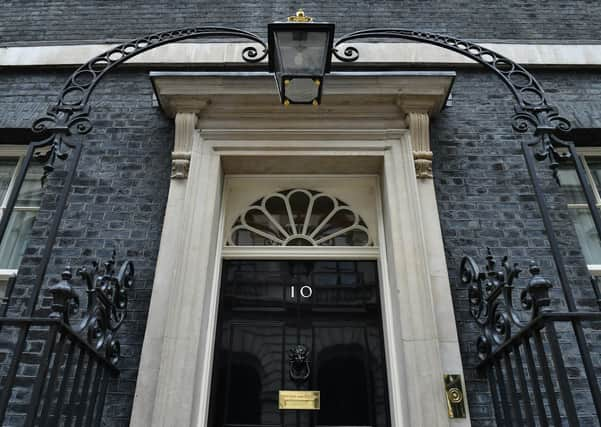Trevor Ringland: The most terrible events of the Troubles did not happen in isolation


The delivery of the findings of the Inquest into the deaths in Ballymurphy in August 1971 has reminded us of that.
These events will uncover raw emotions for the people directly involved and their relatives, but they will also be used for political purposes, often by some of the people who originally fed the conflict through their ideologies.
Advertisement
Hide AdAdvertisement
Hide AdTheir battlefield is now the past and they will use it ruthlessly to pursue their aims.


Each of these incidents was tragic in its own right.
We have to face up to the reality that the period we refer to as the Troubles, too superficially in my opinion, should never have happened.
Whatever our politics and however we identify our community, it was our people who died at Ballymurphy, in the Shankill bombings, at Newry police station, Narrow Water and the rest.
Yet, none of the terrible events happened in isolation.
They took place within the context of a conflict which could easily have tipped into civil war.
Advertisement
Hide AdAdvertisement
Hide AdThat period cost over 3,600 lives directly. 2,148 deaths were caused by republican groups, 1,071 by loyalist paramilitaries, 301 by the army and 50 by the police.
Some estimates claim that 3,000 suicides were an indirect result of the conflict.
Many of the results were less direct but no less damaging.
They’re measurable in the poor health suffered in our society.
If you look at the police ‘family’ as an example, the instances of ‘early death’, caused by stress, cancers, strokes, drug and alcohol abuse were far higher than would normally be expected.
Advertisement
Hide AdAdvertisement
Hide AdDoctors at interface areas too will testify to the health consequences for people living with the legacy of violence.
We’ve examined the past partially, through inquiries, inquests, reports and other investigations, but these often miss the context in which the events they look at took place.
I lived in West Belfast before the conflict began, as part of a police family, and there was no indication that society was going to break down in the way that it did.
There were issues to be tackled, but there was hope that they could be put right.
Advertisement
Hide AdAdvertisement
Hide AdPeople who want to justify using violence outside the law to pursue a constitutional objective would like us to commemorate separately.
They want us to blame the other, to hate, to live separate lives, to keep walls up and they want Northern Ireland to fail socially and economically.
They will use these anniversaries to pursue those goals and they will try to strip away context at every opportunity.
To counter this cynicism, we must never forget the broader picture of what was happening in this part of the world.
Advertisement
Hide AdAdvertisement
Hide AdOne of the most scrutinised events in ‘the Troubles’ was Bloody Sunday.
We know that the shooting of 14 civilians by paratroopers on the streets of Londonderry was wrong.
The incident was investigated in detail by the Saville Inquiry and the prime minister, David Cameron, rightly made a public apology for the conduct of British soldiers.
Just like other tragedies during our conflict Bloody Sunday did not take place in isolation.
Advertisement
Hide AdAdvertisement
Hide AdIt happened as our society was being buffeted by violence and the security forces struggled to prevent this place tipping into outright civil war.
Visit the front pages of the papers of those times and they tell the story of what was happening in Northern Ireland in those times.
They should be made easily accessible to the public so that we are better informed of the context of those times.
We avoided a civil war and we should, at least, be thankful for that and make sure we never allow such hatreds to emerge again.
Advertisement
Hide AdAdvertisement
Hide AdThe British government is under pressure to apologise for those actions of the state that were clearly wrong.
But it is not for the UK alone to be issuing apologies.
It is also for the others including the Irish government, the IRA/ violent republicanism, loyalist paramilitaries and those in politics whose language and actions across this island fed the hatreds that led to and sustained our unnecessary conflict.
Such apologies would help create a better environment in which to look at ‘Legacy’ and help us work through the tragic consequences of the ‘Troubles’.
In a television debate in January 1971, Lord Devlin said that the only solution to the Troubles was “peace without victory”.
His words sum up what has subsequently happened.
There were no winners in our unnecessary conflict.
We all lost.
Advertisement
Hide AdAdvertisement
Hide Ad• Trevor Ringland is a lawyer and reconciliation activist who is a former rugby international and political candidate
——— ———
A message from the Editor:
Thank you for reading this story on our website. While I have your attention, I also have an important request to make of you.
With the coronavirus lockdown having a major impact on many of our advertisers — and consequently the revenue we receive — we are more reliant than ever on you taking out a digital subscription.
Subscribe to newsletter.co.uk and enjoy unlimited access to the best Northern Ireland and UK news and information online and on our app. With a digital subscription, you can read more than 5 articles, see fewer ads, enjoy faster load times, and get access to exclusive newsletters and content. Visit https://www.newsletter.co.uk/subscriptions now to sign up.
Advertisement
Hide AdAdvertisement
Hide AdOur journalism costs money and we rely on advertising, print and digital revenues to help to support them. By supporting us, we are able to support you in providing trusted, fact-checked content for this website.
Alistair Bushe
Editor